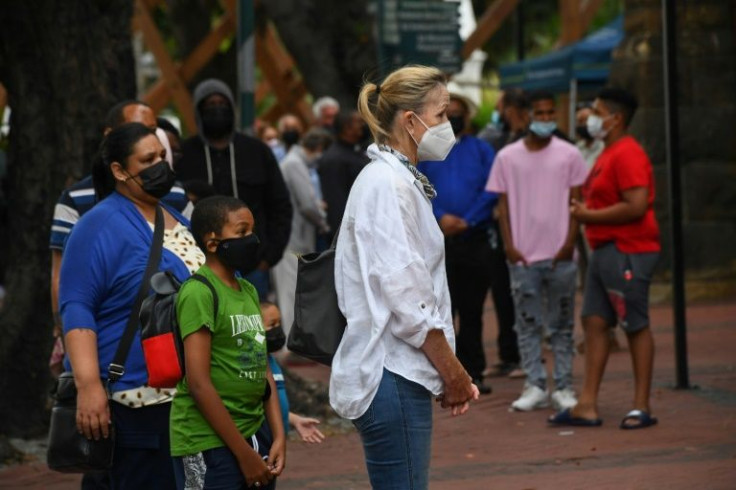Omicron COVID-19 Cases Already Declining In South Africa, 2 Months After First Detection
KEY POINTS
- South African researchers discovered the Omicron variant in November
- The country's rolling average of cases has fallen to just over 10,324 from 23,437
- South Africa may have passed the peak of the fourth wave at a national level, says the government
South Africa appears to have passed the peak of its fourth COVID-19 wave caused by the highly transmissible Omicron variant as case numbers continue to fall, the government has said.
Researchers in South Africa first discovered the Omicron variant in November. Shortly after the discovery, the country saw a new wave of COVID-19 cases that drove its seven-day rolling average of daily cases to 23,437 from just 327.
The surge of infections prompted the South African government to impose strict restrictions in an attempt to curb the spread of the new variant, including setting overnight curfews and putting a cap on public gatherings.
However, those restrictions were relaxed on Dec. 30, ahead of New Year’s Eve, as the country’s rolling average of daily cases fell to 10,324 and showed signs of trending downward.
“All indicators suggest the country may have passed the peak of the fourth wave at a national level,” the government said in a media release Thursday. “The NCCC will continue to closely monitor the situation and will make further adjustments as necessary, particularly if pressure on health facilities increases,” it added.
Health experts believe South Africa’s recent decline in COVID-19 case numbers could be because most residents have previously been exposed to the virus and developed some amount of immunity.
“We have lots of people - up to 70 to 80% of people in our country had been exposed to either the delta or the beta or the original virus in our country. So we have high levels of preexisting immunity,” Dr. Glenda Gray, president of the South African Medical Research Council told NPR, noting that they have a relatively low vaccination rate.
Despite the encouraging sign, John Nkengasong, an infectious disease expert and director of the Africa Centers for Disease Control and Prevention, said other countries should interpret South Africa’s COVID-19 data with caution. He noted that South Africa has a relatively young population. He also added that the country is in the middle of the Southern Hemisphere summer, in which respiratory illnesses are uncommon.
COVID-19 cases caused by the Omicron variant are at an all-time high in the United States, with the daily average of new cases at approximately 401,252 on Jan. 2, according to an analysis by The New York Times.

© Copyright IBTimes 2024. All rights reserved.






















